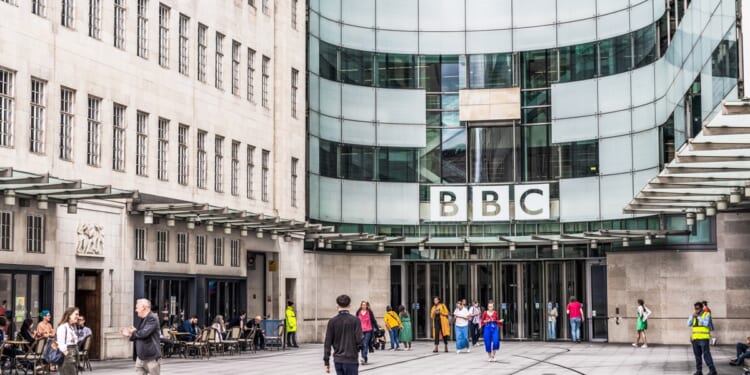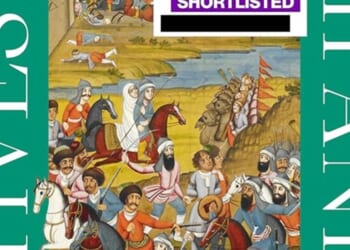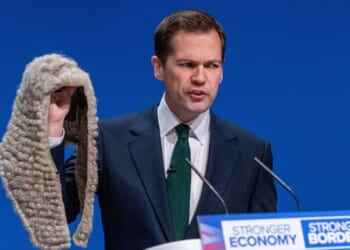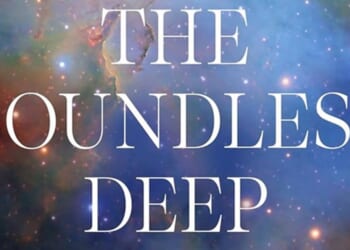SOMETIMES, I think that TikTok is best understood as China’s revenge for the Opium Wars. In the 19th century, we forced the Chinese to accept a dangerous and debilitating drug because the sale of it was so profitable to the East India Company. Today, the Chinese find that we will cheerfully consume a dangerous and brain-rotting app, and they don’t even have to push it on us.
Of course, the analogy is not exact. In our century, American companies, and especially Facebook/Meta, hurried to imitate China with their own products. And, while British merchants could not control the dreams of opium-smokers, the visions of TikTok and Instagram users can be shaped by deliberately tweaking the algorithm.
Ryan Broderick’s newsletter, Garbage Day, showed me a chilling glimpse of this future that’s here already. A freelance journalist, Ellie Hall, has been mapping and exploring the web of influencers in the MAHA movement (Make America Healthy Again: the anti-vax quack movement that presently controls Trump’s Department of Health).
“Just to give you a sense of how interconnected the world of culture and politics is now, thanks to the platforms we use to navigate the web,” Broderick writes. “Ellie told me that recently the algorithms for her MAHA Instagram and TikTok accounts switched to hardcore white nationalism and she had to retrain them to focus on wellness content again. It only took one or two likes of MAHA posts complaining about people using food stamps to buy unhealthy food to trigger a flood of videos of people in red hats attacking welfare queens and AI-generated videos depicting Black women looting stores. It took over 100 engagements with wellness and ‘alternative health’ posts to deprogram it.”
The derailment from hypochondria to racism is so smooth that you never hear the rattle of the points.
That is the nightmare future that the BBC stands to protect us from. Only a taxpayer-funded media organisation can struggle against the reduction of all news to the condition of television advertising — a meaningless distraction, which carries unpleasant subliminal messages.
Perhaps because I had been reading and writing about the Suez Crisis of 1956, this week’s decapitation of the BBC seemed to be another milestone of national humiliation at the hands of the Americans. There are important differences: the arrogance and dishonesty of the Eden government was far greater than anything that the BBC has managed; President Eisenhower was sane and thoughtful, and President Trump is Trump.
Obviously, any and all of us know stories that the BBC got wrong. I think its stance on trans stories has been disgraceful. But to pick on a Panorama edit of President Trump’s speech inciting the rioters who then invaded the Capitol is absurd. Splicing together fragments of his speech which made him sound as if he had exhorted his followers to fight when they marched at the Capitol is an example of the kind of reconstruction by distortion which all television does all the time, because everything has to be spelled out and hammered home for an ignorant and inattentive audience.
It is true that Mr Trump did not directly urge anyone to hang his then Vice-President, Mike Pence. He did not need to — and if there was any doubt about what he intended, or whether he wanted the protests to be peaceful, it has since been dispelled, when he pardoned the rioters and turned the full force of the law on to anyone who had investigated their conduct. The apologies that he and his creatures now demand are as phoney as the confessions at a Stalinist trial. And that is the point. The American President can force British journalists to lie, when he knows, and they know, and we, the watchers, know that they are lying. The message is that they can be forced to do so.
The difficulty is the licence fee. As my friend Ros Taylor has long argued, the BBC should be funded from general taxation, like any other public utility. The licence fee makes it vulnerable to political pressure in a peculiarly damaging way, not just from politicians. It is forced to compete with commercial media to produce the sort of content that they could just all produce for themselves; when it does, that is used to argue that it is not needed.
Those who hate the BBC should remember that its example, however flawed, also protects the native competition. It is the piton that holds the rope to which all other British mass media must cling, dangling above the great abyss of TikTok.

















